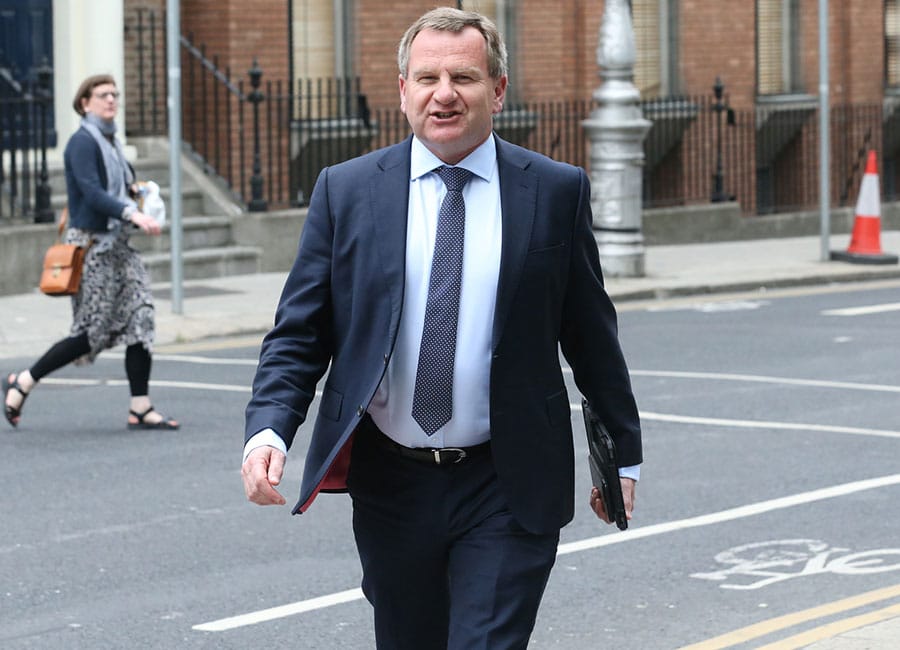Employers' group Ibec has called for the government to strengthen business supports after publishing research that shows that average gas and electricity prices have risen by 90% and 60% in 2022, with further increases expected next year.
Irish businesses forecast that the cost of gas will triple 2021 levels in 2023 and that the cost of electricity will be 2.5-times higher in 2023 than last year as hedging arrangements made prior to the war in Ukraine coming to an end in January.
Seven in 10 respondents to the Ibec survey are forecasting reduced profitability in 2022 due to impact of higher energy inflation.
Of the 39% of companies who reported a doubling of their energy costs, only one-quarter of these could qualify for the Ukraine Enterprise Crisis Scheme, which Ibec has urged the government to redesign to align with EU state aid guidelines and provide more support to businesses.
Conor Minogue, Ibec’s senior executive for infrastructure, energy and climate policy, said: “Energy costs increased for all sectors in 2022 eroding profitability and threatening business viability. The research also shows that business exposure to high energy costs will continue into 2023 as more and more businesses exit contracts and lose pre-crisis hedging arrangements.
"Businesses are forecasting gas prices to be three times higher in 2023 than last year and electricity costs 2.5 times higher. While wholesale gas prices have fallen from the exceptional heights we saw in August, the market remains volatile and prices still remain well above normal levels."
Ibec has called for Temporary Business Energy Support Scheme (TBESS) to be extended to the end of 2023 as well as the introduction of enhanced state supports for renewable energy adoption and energy efficiency projects.

The group has also asked for the government to address planning and installation barriers to the roll out of solar PV in industry, and to work with industry to develop new incentives for participation in the Demand Side Unit Capacity scheme.
“It is vital that the support framework reflects the scale of the crisis and delivers effective support to viable but vulnerable businesses," Minogue added.
"While TBESS and UECS announced in Budget 2023 are providing welcome support to many businesses, the eligibility criteria and support levels remain too restrictive.
“Support schemes across Europe are more accessible and impactful, creating clear competitiveness challenges for Irish businesses. It is now time to extend the TBESS to the end of 2023 and strengthen the UECS scheme by bringing it closer to the EU guidelines and the schemes in other EU member states,” Minogue added.
The TBESS is limited to assisting qualifying businesses with their electricity or natural gas (energy) costs from 1 September 2022 to 28 February 2023.
Germany's €48bn energy bailout
On 21 December 2022, the European Commission approved a €48 billion scheme to support the Germany economy in the context of Russia's war against Ukraine. The scheme was approved under the State aid Temporary Crisis Framework, recognising that the EU economy is experiencing a serious disturbance.
The measure is open to companies across sectors of all sizes which are final consumers of electricity, natural gas, and heat produced using natural gas and electricity.
Direct grants will be channelled via the energy suppliers through monthly instalments in the form of reductions of the electricity, natural gas and heat bills of the eligible beneficiaries. Energy suppliers will be then reimbursed by the German state for the aid.
The individual aid amount is not permitted to exceed 50% of the eligible costs for the maximum aid ceiling of €4 million.
For beneficiaries qualifying as energy-intensive businesses, the overall aid per beneficiary will not exceed 65% of the eligible costs, or 80% for particularly affected sectors. The grants can be disbursed up to 31 December 2023.
(Pic: Getty Images)










